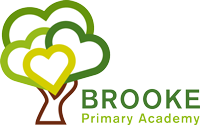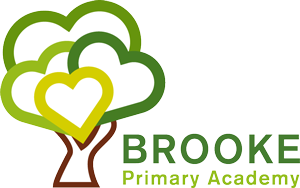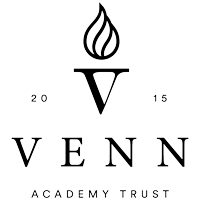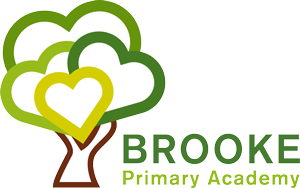
A Venn Academy Trust School
– Together we will…
Venn is a pioneering academy trust, committed to building educational environments where all pupils are inspired to become lifelong learners who achieve the very highest standards possible.
Collaborating with all partners, the Trust works with its unique settings to create world class learning experiences for all.

 Geography
Geography
Geography
Ambition
At Brooke Primary Academy, children will:
- create a growing curiosity and a sense of pride of the local area and the world around them
- know how changing human and physical features influence our land use for both better and worse
- develop a love of places, people and cultures, building up skills as geographers
Implementation
To ensure continuity and progression for all pupils the curriculum is carefully organised from EYFS to Year 6 to ensure that our pupil’s knowledge and understanding of geography develops over time and builds on the skills they have learnt in previous years.
Geography is taught every term. Where possible links are made with other curriculum areas in order to support children linking ideas and enabling teachers to be able to go over key facts and sticky knowledge more often.
Teachers plan opportunities to use the school grounds, local environment and going further afield to conduct geographical fieldwork. When sessions lead to leaving the school grounds staff carry out a risk assessment.
Within the Geography curriculum the children will use a wide range of resources to such as maps and atlases as well as online tools to develop their map reading skills and to support them in comparing localities.
Impact
At the end of their time in Brooke Primary Academy we expect pupils to have achieved the following:
• To have developed a Geographical knowledge of the place they live.
• To be able to compare and contrast their local area with other localities both in the united kingdom and localities from different continents.
• To know how we as humans have an impact on our world not only on a local level but worldwide.
• To identify key geographical features of different areas in the world
• To be able to use fieldwork skills to deepen their understanding of a Geographical area.
• To have a deepened knowledge of diverse places, people, resources and natural and human environments.
• To know how to read a range of maps and produce their own.
• To have gained a curiosity about the world around them, how it has evolved and why.
Further information and resources
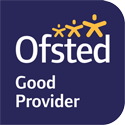
Curriculum and Learning: The curriculum is well-considered, building on previous learning to deepen understanding. While assessment systems need improvement, the school’s overall approach helps in identifying and supporting pupils’ needs.

Safeguarding: The school has effective safeguarding arrangements, creating an open and positive culture that prioritises pupils’ interests.

High Expectations and Progress: The school sets high expectations for all pupils, which are being met. Parents appreciate the support and information provided by the staff and are pleased with the progress their children make.

Overall Effectiveness: The school is rated “Good” in all categories, including quality of education, behaviour and attitudes, personal development, leadership and management, and early years provision.

Promotion of Values: Pupils learn about diversity and British values through various activities and demonstrate positive attitudes and respect for others. The school also encourages community involvement, such as the choir singing in residential homes and helping at the local food bank.

Positive Behaviour: Changes in how behaviour is managed have helped pupils reflect on their feelings and make better choices. This has resulted in positive behaviour during lessons and playtimes.

Anti-Bullying: Pupils respect each other, believe in the school’s values, and feel confident that any issues, including bullying, would be resolved quickly by adults.

School Environment: The academy is described as a warm and welcoming place where pupils feel safe and happy. Respectful and positive relationships are central to the school’s environment.

Reading and Phonics: The school is committed to ensuring all pupils learn to read. Effective training and support for teachers, along with appropriate reading materials and catch-up sessions, help pupils read accurately and confidently.

Governance and Leadership: Trustees and governors are skilled and committed, regularly visiting the school and maintaining an accurate picture of its operations to ensure continued improvement.

Extracurricular Activities: There is a wide range of clubs available, such as football, rugby, forest school, and choir, which help develop pupils’ talents and interests.

Support for SEND: The school effectively identifies and supports pupils with special educational needs and/or disabilities (SEND), involving parents in the assessment process and adapting lessons to help these pupils build new knowledge.

Early Years Provision: The early years setting promotes positive relationships and collaboration among children. Adults model effective communication and use assessment well to engage children in their learning.
